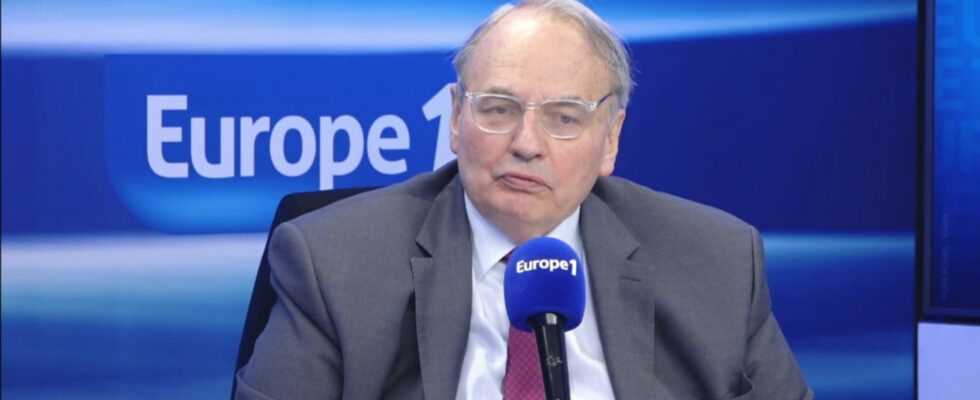Questioned by Dimitri Pavlenko, Jean-Louis Bourlanges, chairman of the Foreign Affairs Committee of the National Assembly, was indignant at the European reaction to the Russian presence in Ukraine. “What is surprising is our surprise. What is surprising is our demobilization. We are in a tough world and we are faced with a man [Vladimir Poutine] which defends a kleptocracy because it is all the same a power which has simply grabbed for itself all and its oligarchs, all of the wealth of a country”.
“He can’t live with democratic contagion and he reacts to anything that looks like a democratic expansion of ideas with violence. That’s the world we’re in. And now we ‘have discovered,’ says Jean-Louis Bourlanges.
Institutional changes to the functioning of the European Union
According to Jean-Louis Bourlanges, the war in Ukraine “profoundly changes the prospects of the European Union”. The Chairman of the National Assembly’s Foreign Affairs Committee also denounced the structural problems of the European Union. “We are facing institutional inertia. We believed that we could expand without changing anything important to the way we operate. We do not operate at twenty-eight or twenty-seven as we operated at six or nine. or at twelve, and we will not operate at thirty-seven as we operate today at twenty-seven”, he asserts at the microphone of Europe 1.
In particular, he mentions a system of differentiated membership of the European Union. “That is to say that we will have degrees of integration that will not be the same, between the hard core that we represent with the Benelux countries, Germany, Italy, Spain as well and a few others. Between these and the extreme periphery, we will invent different modes of membership.”
The chairman of the Foreign Affairs Committee also pleaded for an institutional change in the functioning of the European Union. “We have to move towards the power of the majority, not the simple majority, which is a majority of confrontations between each other, but the qualified majority which is a majority of inclusion. And without this institutional reform, we see although states are dragging their feet.”
“It has been necessary since the fall of the Berlin Wall, we have not done it and we cannot envisage the slightest transformation of the perimeter of the European Union if we do not attack this institutional requirement”, also analyzes Jean-Louis Bourlanges.
